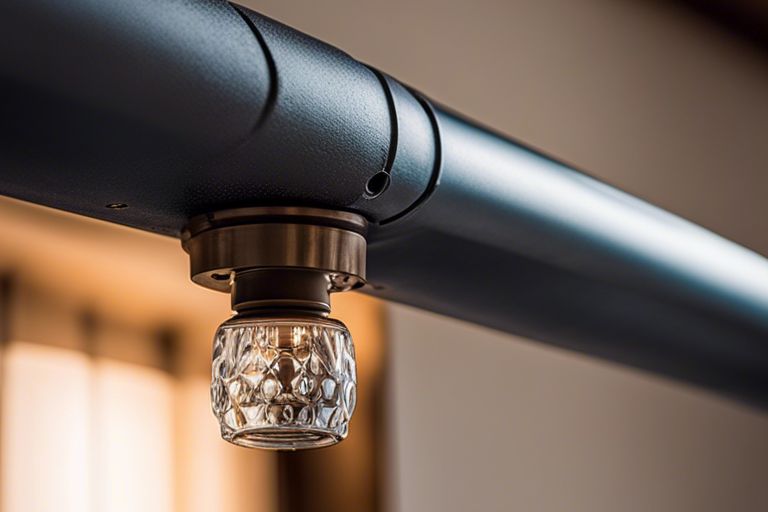How To Identify The Signs You Need Repiping Services In Yorba Linda Homes

Many homeowners in Yorba Linda may not realize that their plumbing system is silently deteriorating until it leads to bigger issues. Understanding the signs that indicate your pipes need attention can save you from costly repairs and water damage. In this guide, you’ll learn the telltale signs that your home requires repiping services, empowering you to make informed decisions to ensure the safety and efficiency of your plumbing system. Key Takeaways: Frequent Leaks: If you’re experiencing recurrent leaks in your plumbing system, it may indicate that your pipes are deteriorating and need repiping. Discolored Water: Water that appears brown or rust-colored can signal corrosion in the pipes, which is a strong indicator that repiping services should be considered. Low Water Pressure: A noticeable drop in water pressure throughout the home can be a sign of blockages or leaks in the plumbing system that may necessitate repiping. Understanding Repiping To fully grasp the necessity of repiping in your Yorba Linda home, it’s imperative to understand what repiping is and why it might become necessary. Repiping refers to the process of replacing your home’s old, damaged, or corroded pipes with new piping materials. The primary aim is to improve your plumbing system’s efficiency, reliability, and safety. Over time, pipes can deteriorate due to age, mineral buildup, or even tree root invasions, leading to leaks, reduced water quality, and potential health hazards. Recognizing when you need repiping can save you from more extensive plumbing issues in the long run. To put it simply, repiping is a significant home improvement project that should be addressed promptly once you detect signs of plumbing failure. This process can enhance your home’s water flow and pressure, ensuring that you have consistent access to clean water. Neglecting to repipe can result in increased water bills and damage to your home, so being informed about this critical maintenance service is beneficial. What is Repiping? To appreciate the importance of repiping, you must recognize the various conditions that necessitate this service. If you experience frequent leaks, discolored water, or persistent low water pressure, these are often indicators that your piping system may need an upgrade. In addition to improving water quality, repiping can also increase the overall value of your home by ensuring that the plumbing is up to date and compliant with modern standards. Common Materials Used in Repiping Materials play a crucial role in the repiping process, as the type of piping you choose can significantly impact your plumbing system’s longevity and performance. Common materials used in repiping include copper, PEX (cross-linked polyethylene), and CPVC (chlorinated polyvinyl chloride). Each material has its own set of advantages and disadvantages, so understanding the options available to you is imperative when considering repiping in your home. It’s important to note that copper pipes are known for their durability and resistance to corrosion, making them a popular choice despite their higher cost. PEX is increasingly becoming favored for its flexibility and ease of installation, which can reduce labor costs. Finally, CPVC offers an affordable alternative that is also resistant to corrosion, although it may not have the same lifespan as the other materials. Evaluating the pros and cons of these materials can help you make an informed decision that best suits your repiping needs. Signs You Need Repiping Services It is crucial for homeowners to recognize the signs that indicate the need for repiping services. Over time, the pipes in your home can wear out, become corroded, or develop leaks, leading to a host of plumbing issues. By being proactive and aware of the following signs, you can save yourself from expensive repairs and water damage in the long run. Frequent Leaks in Plumbing To determine if you require repiping services, you should take note of any frequent leaks in your plumbing. If you find yourself constantly fixing leaky pipes or dealing with minor water damage, this may indicate that your plumbing system is deteriorating. Frequent leaks are not just an inconvenience; they can lead to larger issues if not addressed promptly. Continuing to patch up these leaks may only prolong the inevitable need for a complete repiping. To further assess your situation, consider how often these leaks occur and where they are located. If multiple pipes are causing issues or if leaks happen in various areas of your home, the underlying problem could be due to aging or damaged pipes. In such cases, consulting with a plumbing professional about repiping may be your best option. Discolored or Rusty Water Assuming you notice discolored or rusty water coming from your taps, this can be a significant indication that your pipes require repiping. Rusty water typically signifies that your pipes are corroding, and this should not be taken lightly. It not only affects the aesthetic of the water but can also impact your health and the longevity of your plumbing fixtures. This discoloration often results from the breakdown of older metal pipes, which can leach harmful substances into your water supply. Needless to say, if you are experiencing discolored or rusty water, you should address this issue as soon as possible. Ignoring it can lead to more severe plumbing problems and health concerns. Consulting a qualified plumber to evaluate your system can help determine if a full repipe is necessary to restore clean, safe water flow. Changes in Water Pressure Rusty pipes can also lead to noticeable changes in water pressure throughout your home. If you experience low water pressure or fluctuating pressure that makes it difficult to use multiple fixtures simultaneously, this could be a sign that your plumbing needs attention. In many cases, this occurs as a result of corrosion or blockages in your pipes, leading to uneven water flow and an overall diminished performance of your plumbing system. Rusty pipes can cause build-ups that restrict water flow and ultimately create inconsistencies in pressure. If you’ve noticed these changes consistently, it’s wise to investigate the condition of your plumbing. Delaying professional assistance can result in further deterioration and costly repairs.
